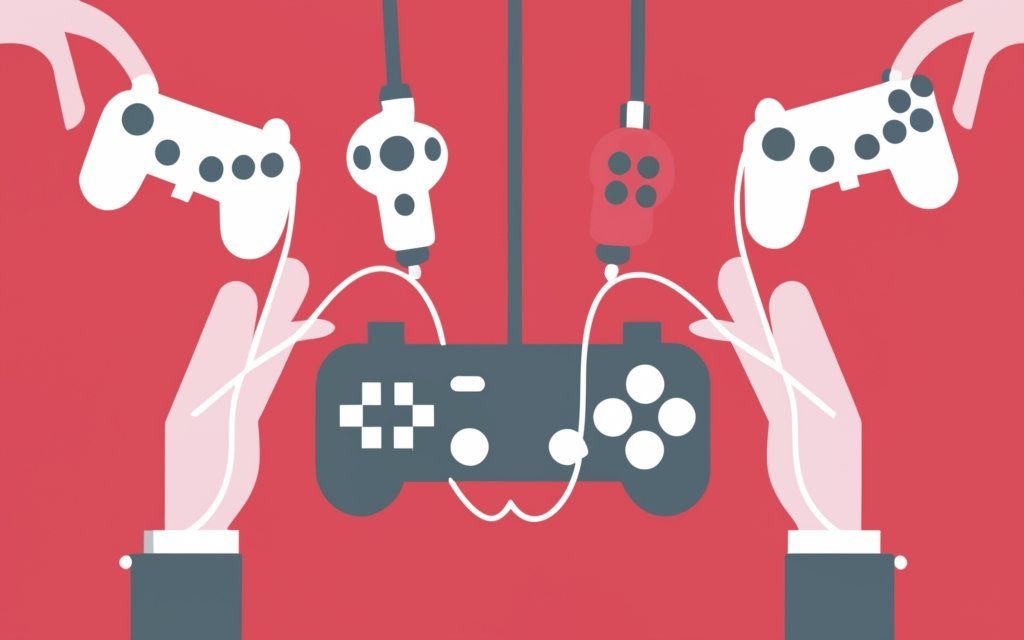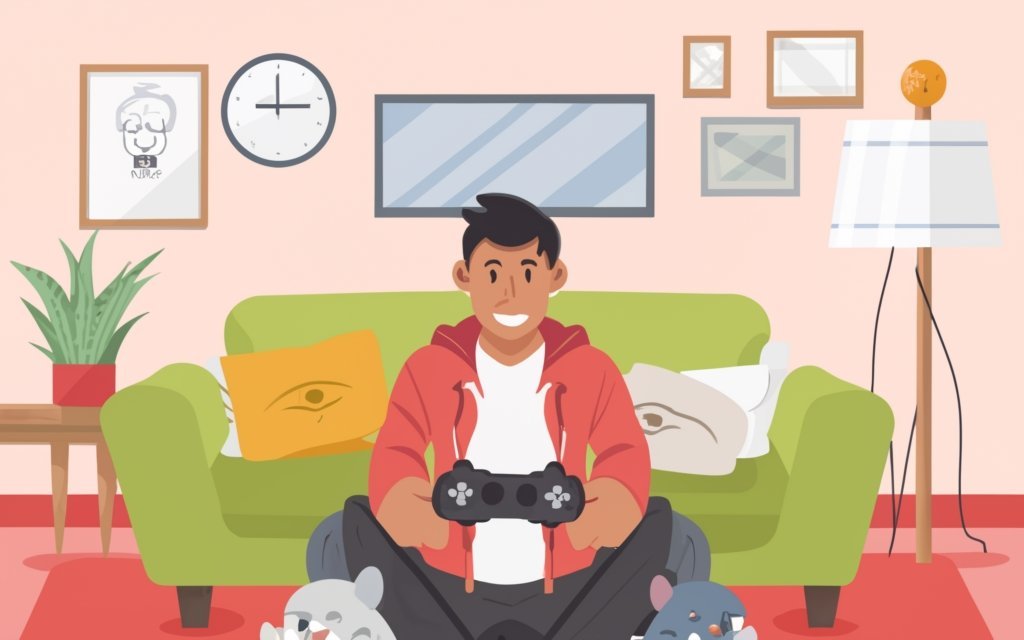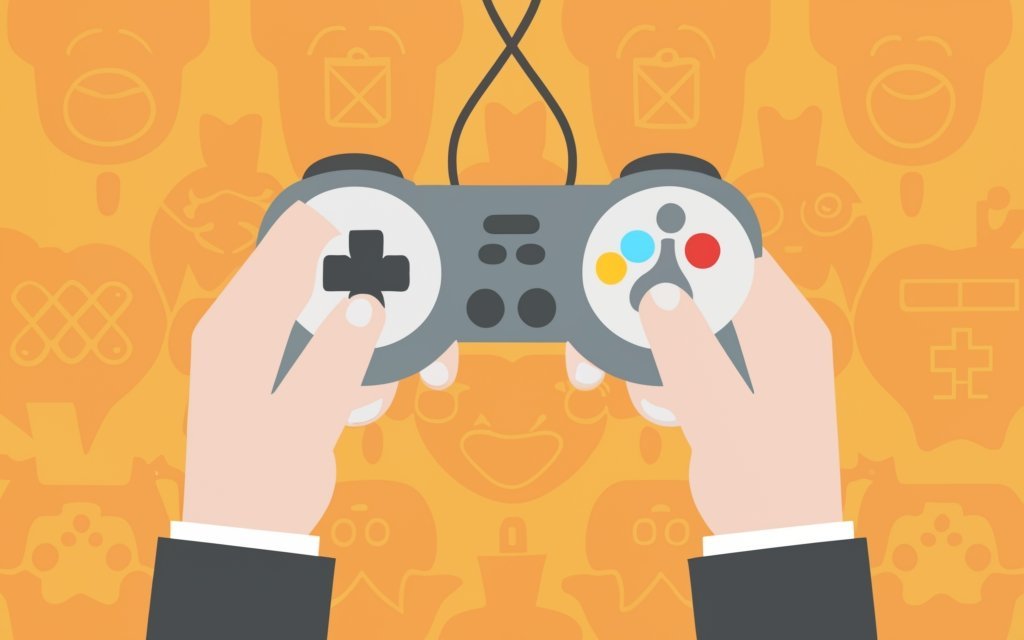The world of video games has evolved significantly over the years, with the genre now encompassing a wide array of themes, narratives, and gameplay styles. While many video games are designed purely for entertainment, a growing body of research suggests that they may also have real-world implications, particularly when it comes to the issue of violence. This article aims to delve beyond the entertainment aspect and unravel the complex relationship between video game violence and health issues.
The intersection of video game violence and health issues is a multifaceted one, involving not only psychological aspects such as aggression and addiction, but also physical health and well-being. This relationship is complex and multifaceted, with various factors contributing to the development and manifestation of these issues.
In this article, we will explore the influence of video game violence on health, the role of video game addiction in problematic violence, and the effects of video games on well-being and health. We will also discuss the role of video game genre, personality characteristics, and social interaction in this complex relationship.
By understanding the nexus between video game violence and health issues, we can better inform policies and interventions aimed at promoting healthy video game use and mitigating potential negative impacts.
The Role of Video Game Violence in Real-World Aggression
Video game violence has been a topic of debate for years, with some research suggesting a link between violent video game exposure and aggressive behavior. However, it’s important to note that the link between violent video game exposure and aggressive behavior is not necessarily a direct cause-and-effect relationship. Instead, it may be more a matter of correlation, where individuals who are more prone to aggression may be more likely to engage in violent video games.
- The American Psychological Association (APA) has found that the link between violent video game exposure and aggressive behavior is one of the most studied and best established. This link continues to be a reliable finding and shows good multi-method consistency across various representations of both violent video game exposure and aggressive behavior.
- However, the effect sizes are small, and they’ve been similar across many studies. The problem has been the interpretation of aggression, with some writers claiming an unfounded connection between homicides, mass shootings, and other extremes of violence. The violence the APA resolution documents is more mundane and involves the kind of bullying that, while often having dire long-term consequences, is less immediately dangerous: insults, threats, hitting, pushing, hair pulling, biting, and other forms of verbal and physical aggression.
The Impact of Video Game Violence on Mental Health
The impact of video game violence on mental health is another topic of interest. Some studies suggest that violent video games may not be a risk factor for mental health problems in youth, while others argue that exposure to these games may lead to an increase in aggressive behavior.

- It’s important to note that the impact of video game violence on mental health can vary greatly depending on a variety of factors, including the individual’s personality, the type of game, and the context in which the game is played.
- For example, a study found that aggressive video games are not a risk factor for mental health problems in youth. This suggests that not all exposure to violent video games is harmful.
- On the other hand, a study found that violent video game engagement is not associated with adolescents’ aggressive behavior. This suggests that the link between violent video games and aggressive behavior is not as straightforward as it may seem.
The Role of Video Game Violence in Social Cognition
Video game violence also plays a role in social cognition, which is the ability to understand and interpret social situations and interactions. This is particularly relevant in the context of violent video games, which often involve complex social interactions and relationships.
- For example, the game “The Sims” is a life simulation game that allows players to create virtual individuals called “Sims”, customize their appearance, personalities, and place them in a home. The player directs their moods, satisfies their desires, and accompanies them in their daily activities. This game is generally considered as a pro-social and clearly non-violent game.
- However, other games with violent content may have a different impact on social cognition. These games may provide players with opportunities to practice and develop their skills in managing aggression and conflict, which can be beneficial in real-life situations.
While the link between violent video game exposure and aggressive behavior is not necessarily a direct cause-and-effect relationship, it is a complex correlation that can be influenced by various factors.
- It’s important to note that the link between violent video game exposure and aggressive behavior is not necessarily a direct cause-and-effect relationship. Instead, it may be more a matter of correlation, where individuals who are more prone to aggression may be more likely to engage in violent video games.
- However, the effect sizes are small, and they’ve been similar across many studies. The problem has been the interpretation of aggression, with some writers claiming an unfounded connection between homicides, mass shootings, and other extremes of violence. The violence the APA resolution documents is more mundane and involves the kind of bullying that, while often having dire long-term consequences, is less immediately dangerous: insults, threats, hitting, pushing, hair pulling, biting, and other forms of verbal and physical aggression.
The Impact of Video Game Violence on Mental Health (Continued)
The impact of video game violence on mental health is another topic of interest. Some studies suggest that violent video games may not be a risk factor for mental health problems in youth, while others argue that exposure to these games may lead to an increase in aggressive behavior.

- It’s important to note that the impact of video game violence on mental health can vary greatly depending on a variety of factors, including the individual’s personality, the type of game, and the context in which the game is played.
- For example, a study found that aggressive video games are not a risk factor for mental health problems in youth. This suggests that not all exposure to violent video games is harmful.
- On the other hand, a study found that violent video game engagement is not associated with adolescents’ aggressive behavior. This suggests that the link between violent video games and aggressive behavior is not as straightforward as it may seem.
The Role of Video Game Violence in Social Cognition (Continued)
Video game violence also plays a role in social cognition, which is the ability to understand and interpret social situations and interactions. This is particularly relevant in the context of violent video games, which often involve complex social interactions and relationships.
- For example, the game “The Sims” is a life simulation game that allows players to create virtual individuals called “Sims”, customize their appearance, personalities, and place them in a home. The player directs their moods, satisfies their desires, and accompanies them in their daily activities. This game is generally considered as a pro-social and clearly non-violent game.
- However, other games with violent content may have a different impact on social cognition. These games may provide players with opportunities to practice and develop their skills in managing aggression and conflict, which can be beneficial in real-life situations.
while there is some evidence to suggest a link between video game violence and real-world aggression, the relationship is complex and not fully understood. It’s also important to consider other factors, such as the individual’s personality and the context in which the game is played. Furthermore, video game violence can have an impact on social cognition, which is crucial for understanding and managing social situations and interactions.
The Role of Video Game Violence in Cyberbullying
Cyberbullying is a significant issue in today’s digital age, and violent video games can contribute to this problem. Some research suggests that violent video games can lead to an increase in cyberbullying behavior.

- According to a study published in Current Psychology, violent video games can exacerbate reactive-proactive aggression and cyberbullying. This suggests that violent video games can provide a platform for aggressive behavior to be expressed and can contribute to the spread of aggression and bullying in the digital realm.
- However, it’s important to note that not all violent video games contribute to cyberbullying. The impact of a violent video game on cyberbullying behavior can depend on various factors, including the individual’s personality, the type of game, and the context in which the game is played.
The Role of Video Game Violence in Normative Beliefs About Aggression
Normative beliefs about aggression are important cognitive factors that influence adolescent aggression. These beliefs can be divided into two types: general beliefs and retaliatory beliefs. The former refers to a general view about aggression, while the latter reflects aggressive beliefs in provocative situations.
- According to a study published in the Journal of Research in Personality, violent video games can initiate adolescents’ observational learning. In this situation, not only can they imitate the aggressive behavior of the model but also their understanding and acceptability about aggression may change. Therefore, normative beliefs about aggression can also be a mediator between violent video games and adolescent aggression.
- However, the mediating role of normative beliefs about aggression is not influenced by factors such as gender, prior aggression, and parental monitoring. This suggests that the impact of violent video games on normative beliefs about aggression can be influenced by a variety of factors, and further research is needed to fully understand this relationship.
The Role of Video Game Violence in Social Cognition
Video game violence also plays a role in social cognition, which is the ability to understand and interpret social situations and interactions. This is particularly relevant in the context of violent video games, which often involve complex social interactions and relationships.
- According to a study published in Neuropsychology Review, the effect of a competitive context in nonviolent video games on aggression can be mediated by frustration and moderated by other factors. This suggests that the impact of violent video games on social cognition can be influenced by various factors, including the competitive context of the game and the individual’s level of frustration.
- However, the impact of violent video games on social cognition can vary greatly depending on a variety of factors, including the individual’s personality, the type of game, and the context in which the game is played.
The Role of Video Game Violence in Aggression
The relationship between violent video games and adolescent aggression has become a hot issue in psychological research. Some researchers have proposed alternative points of view. For example, a meta-analysis by Sherry suggested that violent video games have minor influence on adolescent aggression. Meanwhile, Ferguson proposed that publication bias (or file drawer effect) may have implications in the effect of violent video games on adolescent aggression.

- According to a study published in the Journal of Research in Personality, violent video games can initiate adolescents’ observational learning. In this situation, not only can they imitate the aggressive behavior of the model but also their understanding and acceptability about aggression may change. Therefore, normative beliefs about aggression can also be a mediator between violent video games and adolescent aggression.
- However, the mediating role of normative beliefs about aggression is not influenced by factors such as gender, prior aggression, and parental monitoring. This suggests that the impact of violent video games on normative beliefs about aggression can be influenced by a variety of factors, and further research is needed to fully understand this relationship.
The Role of Video Game Violence in Mental Health
The impact of video game violence on mental health is another topic of interest. Some studies suggest that violent video games may not be a risk factor for mental health problems in youth, while others argue that exposure to these games may lead to an increase in aggressive behavior.
- It’s important to note that the impact of video game violence on mental health can vary greatly depending on a variety of factors, including the individual’s personality, the type of game, and the context in which the game is played.
- For example, a study found that aggressive video games are not a risk factor for mental health problems in youth. This suggests that not all exposure to violent video games is harmful.
- On the other hand, a study found that violent video game engagement is not associated with adolescents’ aggressive behavior. This suggests that the link between violent video games and aggressive behavior is not as straightforward as it may seem.
The Role of Video Game Violence in Real-World Aggression
Video game violence has been a topic of debate for years, with some research suggesting a link between violent video game exposure and aggressive behavior. However, it’s important to note that the link between violent video game exposure and aggressive behavior is not necessarily a direct cause-and-effect relationship.
- The American Psychological Association (APA) has found that the link between violent video game exposure and aggressive behavior is one of the most studied and best established. This link continues to be a reliable finding and shows good multi-method consistency across various representations of both violent video game exposure and aggressive behavior.
- However, the effect sizes are small, and they’ve been similar across many studies. The problem has been the interpretation of aggression, with some writers claiming an unfounded connection between homicides, mass shootings, and other extremes of violence. The violence the APA resolution documents is more mundane and involves the kind of bullying that, while often having dire long-term consequences, is less immediately dangerous: insults, threats, hitting, pushing, hair pulling, biting, and other forms of verbal and physical aggression.
The Role of Video Game Violence in Social Cognition
Video game violence plays a significant role in social cognition, which is the ability to understand and interpret social situations and interactions. This is particularly relevant in the context of violent video games, which often involve complex social interactions and relationships.
Normative Beliefs About Aggression and Violent Video Games
Normative beliefs about aggression are one of the most important cognitive factors influencing adolescent aggression. These beliefs can be divided into two types: general beliefs and retaliatory beliefs. The former means a general view about aggression, while the latter reflects aggressive beliefs in provocative situations 1.
- Studies have found that normative beliefs about aggression are directly related to aggression. Self-reported aggression is significantly correlated to normative beliefs about aggression. General normative beliefs about aggression can predict young people’s physical, verbal, and indirect aggression. Retaliatory normative beliefs about aggression can anticipate adolescent retaliation behavior after 1 year. There is a longitudinal temporal association of normative beliefs about aggression with aggression. Normative beliefs about aggression are significantly positively related to online aggressive behavior, which is the most important determining factor of adolescent cyberbullying. Teenagers with high normative beliefs about aggression are more likely to become bullies and victims of traditional bullying and cyberbullying. Finally, normative beliefs about aggression can significantly predict the support and reinforcement of bystanders in offline bullying and cyberbullying.
- According to Bandura’s social cognitive theory, violent video games can initiate adolescents’ observational learning. In this situation, not only can they imitate the aggressive behavior of the model but also their understanding and acceptability about aggression may change. Therefore, normative beliefs about aggression can also be a mediator between violent video games and adolescent aggression. Studies have shown that the mediating role of normative beliefs about aggression is not influenced by factors such as gender, prior aggression, and parental monitoring.
The Effect of Competitive Context in Nonviolent Video Games on Aggression
The effect of a competitive context in nonviolent video games on aggression can be mediated by frustration and moderated by other factors 2.
- This suggests that the impact of violent video games on social cognition can be influenced by various factors, including the competitive context of the game and the individual’s level of frustration.
The Contagious Impact of Playing Violent Video Games on Aggression
The contagious impact of playing violent video games on aggression has been studied longitudinally 5.
- A cross‐lagged regression analysis was performed to examine the impact of friends’ amount of violent video game play on the participant’s aggression over time. The overall regression was significant. Friends’ amount of violent video game play at Time 1 significantly predicted participant’s aggression at Time 2. Participant’s aggression showed high stability, whereas the participant’s amount of violent video game play at Time 1 did not significantly predict the participant’s aggression at Time 2.
A Case Study of Videogame-Related Violence Among Adolescents.
A case study of videogame-related violence among adolescents provides additional insight into the role of video game violence in social cognition 9.
- The study reviewed medical charts from 3 children who presented at the emergency department at the Buffalo General Medical Center due to aggressive behavior involving a videogame. The children had episodes of physical aggression over a videogame in which they chased each other with a knife or became physically aggressive with their mother in reaction to losing in a game. The study suggests that videogames may negatively affect children and adolescents by promoting aggressive behaviors.
You should read another article i wrote about >>>> Pixels and Pitfalls: Understanding the Complex Relationship of Video Game Violence and Addiction to learn more.






